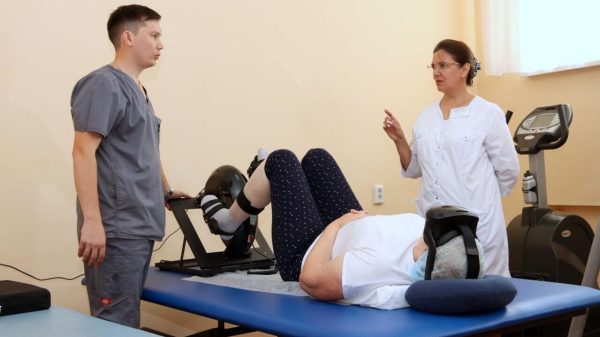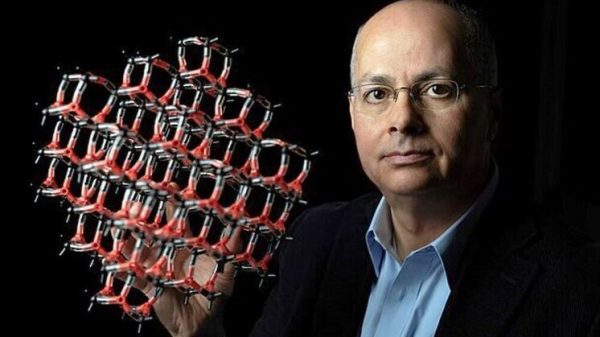
MOSCOW, January 5, Tatyana Pichugina.It is known that the brain is responsible for appetite. However, it is not entirely clear what motivates us to eat or, conversely, to experience a feeling of fullness. Recently, researchers from the USA experimentally demonstrated that taste inhibits the process of eating. Will this help find a cure for overeating — in the material.
What happens in the brain when we start eating
The vagus nerve runs from the brain to the abdominal cavity, the branches and processes of which penetrate the entire gastrointestinal tract. As soon as food enters the mouth, neurons are activated and transmit information. The exchange takes place according to the type of feedback, which also involves molecules synthesized in response to the supply of nutrients or stretching of the wall of a hollow organ.
«They act both at the level of the gastrointestinal tract, for example, influencing motility of the intestine, and at the level of the brain,” explains Lahta Clinic endocrinologist Ksenia Solovyova.
Scientists have best understood how the feeling of hunger arises and our taste preferences. The mechanism of saturation is also generally clear. Information about food is sent to the hypothalamus and the caudate nucleus of the solitary tract, a region deep in the brain stem composed mainly of two types of neurons. Some release the hormone prolactin (PRLH), others synthesize glucagon-like peptides (GCG), which are involved in the processing of glucose. Agonists of these hormones (GLP-1, GIP) are used as anti-obesity drugs.
It remains to be seen how the sensorimotor connection between the brain and the stomach works, and what role both groups of neurons play. Scientists from the University of California at San Francisco undertook to solve the problem in experiments on mice. 
In previous work, animals were euthanized and neuronal activity was measured in response to stomach filling. Moreover, the process of food absorption was replaced by an inflatable balloon. Such techniques do not give an idea of what is happening in reality.
This time, rodents were placed in the most natural conditions and a method was developed for reading the signals of single neurons during food intake or, conversely, hunger. The mice were fed a variety of foods, given drinks to drink, and watched to see which cells were activated in each case. To test the results, we used genetically modified mice that lacked normal taste buds.
As it turned out, when experimental subjects just lick food and it enters the mouth, PRLH neurons fire. Fat, sugar and artificial sweeteners activate them in seconds. They do not react to water. The key factor for this type of cell is the taste of food, the authors of the article believe.
But that's not all. As soon as mice start eating, PRLH neurons signal this to the brain and from there comes a command to reduce the rate of food absorption.
GCG neurons respond much more slowly—minutes after the start of a meal. Filling the stomach with food or air has the same effect. Consequently, these cells recognize changes in the volume of the organ and thus signal the brain about the amount of food eaten. To test this hypothesis, the scientists stimulated GCG neurons with a laser. The animals thought they were full and ate less in the following hours.
This work shows that mammals have an internal brake that is activated when food is tasty and high in calories, or when food is plentiful. However, not everything is clear. For example, why does the absorption rate slow down if the food is tasty? This seems counterintuitive. It remains unclear how information coming to the brain from the mouth and stomach interacts. The issue with other types of neurons in the caudate nucleus was also not revealed. There are two dozen of them in total.
«In the article, the authors tried to explain how these groups of neurons work in an animal model. But these data cannot be completely extrapolated to the human population — at least because cognitive aspects are added to the physiological aspects of the regulation of hunger and satiety in humans. Our experience, preferences, thoughts and feelings associated with food can also influence eating behavior, sometimes even more than physiological ones,” Solovyova points out.
Why we overeat and how to stop it
«Stimulation of some cells of the hypothalamus causes hunger, others — satiety. Due to the constant receipt of signals from internal organs, these stimuli are updated, their activity is constantly changing. Additional impulses arrive from the hypothalamus and to other parts of the brain, including the cortex: the regulation of eating behavior begins to depend on higher nervous activity — memory, thinking, emotions and other cognitive processes characteristic of humans. This is how the body constantly maneuvers between hunger and satiety,» explains Ksenia Solovyova.
In some cases, this balance is disrupted and the person begins to overeat. In science, this is understood as an indomitable appetite when a large amount of food is absorbed in a short time. During an episode of gluttony, the expert adds, a person does not control behavior, and afterward he is overcome by feelings of guilt and shame.
There are many reasons for overeating, from genetic to psychological. For example, children with Prader-Willi syndrome, caused by chromosomal mutations, behave this way. Most people simply do not have the skill to control emotions or have a disrupted diet, for example, due to diets and frequent skipping meals.
“Overeating does not always indicate a disease. Food can act as the most understandable and accessible regulator of emotions, occupy our time and accompany various social situations. If such episodes are repeated once a week or more often for three months, they are accompanied by negative thoughts about one’s own body , its shape and weight, and also lead to disruption of social contacts, interfere with a person’s ability to work or study, they may meet the criteria for a serious illness from a group of eating disorders called binge eating disorder,” says the doctor.
To avoid overeating during the holidays, the expert makes the following recommendations.
- Do not starve or go on diets to quickly lose weight. “The more intense the restrictions, the higher the likelihood of overeating during and after. Don’t let the “yo-yo effect” defeat you again,” advises Solovyova.
- Eat fiber-rich foods — vegetables, fruits, whole grains, cereals, mushrooms. They help you feel full quickly.
- Use visual cues to estimate serving size. You can fill half your plate with non-starchy vegetables. The optimal portion of protein — meat, fish, eggs — is the size of the palm of your hand, carbohydrates (cereals, potatoes, pasta) — the size of a fist or a handful if the product is bulk. A portion of fat (this can be butter or sauce) is no more than a khalang of a finger.
- Eat only what is on your plate. “Choose dishes, measure portions, place them on a plate with a diameter of 22-25 centimeters and during the feast, eat from it, and not from the common table,” the specialist recommends.
- Plan nutrition. There is no need to starve all day while waiting for a visit in the evening. According to research, people who eat less than three times a day are more likely to overeat.
- Do not add the supplement right away, wait about 15 minutes. “Perhaps it is not a matter of hunger or lack of satiety, but food performs some other function. For example, we eat more in social situations when we are sad, bored or have nothing to occupy our time,” explains the doctor.
- Don't forget about physical activity. Feasts can be replaced by meeting friends at the skating rink, going to a concert with your family, or winter sports.
Therapist Elena Manowska, an expert at Coral Club, recommends eating slowly and drinking enough fluids, because sometimes hunger is confused with thirst, do not abuse alcohol, which stimulates appetite, take complex vitamins and minerals. The key factors against overeating, the expert emphasizes, are moderation and awareness of one’s own needs.




















































Свежие комментарии